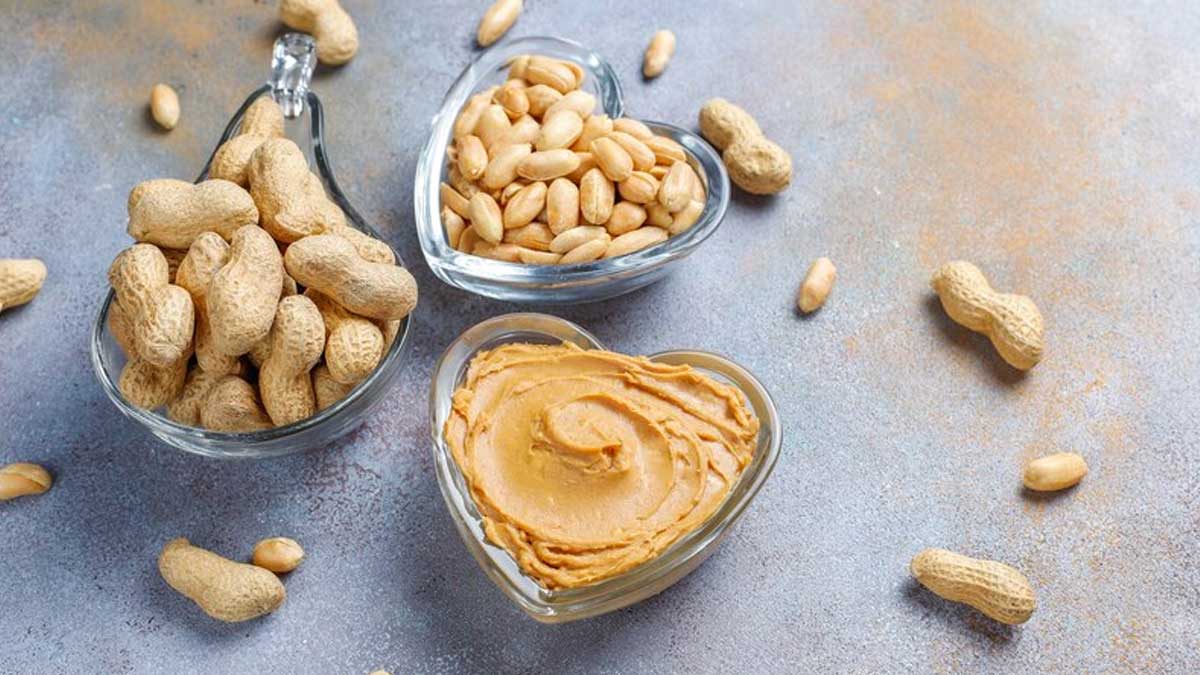
Peanuts are often seen as high-calorie snacks that might derail your weight loss goals. However, contrary to popular belief, peanuts can actually be a great addition to your diet if you're looking to shed some pounds. Rich in nutrients, healthy fats, and protein, peanuts can help control hunger, stabilise blood sugar levels, and provide lasting energy. In this article, we explore the science-backed reasons why peanuts can be a weight-loss-friendly snack and look at studies that support these claims.
Table of Content:-
1. High Protein Content Keeps You Full
Peanuts are a rich source of protein, containing about 25 grams per 100 grams. Protein is known to increase satiety, meaning it keeps you feeling full longer, which can reduce overall calorie intake. A study published in the American Journal of Clinical Nutrition found that diets higher in protein led to more significant weight loss compared to low-protein diets. By including peanuts in your diet, you can naturally boost your protein intake, helping you curb those mid-day cravings.
2. Healthy Fats That Support Weight Loss
While peanuts are high in fats, they primarily consist of healthy monounsaturated and polyunsaturated fats, which are beneficial for heart health and weight management. These fats can help control hunger, unlike trans fats or saturated fats that can lead to weight gain. A study in the Journal of Nutrition highlighted that individuals who consumed a diet rich in monounsaturated fats, like those found in peanuts, experienced better weight control and reduced belly fat compared to those on a low-fat diet.
Also read: What Are Benefits and Risks Of Peanut Consumption

3. Low Glycemic Index Helps Stabilise Blood Sugar
Peanuts have a low glycemic index (GI), which means they release glucose slowly into the bloodstream. This helps maintain stable blood sugar levels and reduces insulin spikes that can lead to fat storage. A study published in Nutrition & Metabolism showed that incorporating peanuts into a meal can help lower the overall glycemic response, making it an excellent option for people managing their weight and blood sugar levels.
4. Fibre Content Aids Digestion and Satiety
Peanuts are a good source of dietary fibre, with around 8 grams per 100 grams, which helps in promoting gut health, regular digestion, and prolonged satiety. A study from The Journal of Nutrition pointed out that increased fibre intake is associated with lower body weight and reduced waist circumference. Fibre not only helps in keeping you full but also aids in better digestion, preventing bloating—a common issue when on a weight-loss journey.
5. Portion Control and Caloric Density
While peanuts are calorie-dense, studies suggest that they may not contribute to weight gain when consumed in moderation. Research from The International Journal of Obesity found that nuts like peanuts do not contribute to expected weight gain due to their high fibre and protein content, which promotes satiety and increases metabolism slightly. This means that a handful of peanuts can keep you fuller for longer compared to other high-carb snacks like chips or pretzels.

Also read: Peanuts Vs Peanut Butter: Which Is Healthier?
6. Thermogenic Effect of Eating Peanuts
Interestingly, peanuts can also slightly boost your metabolism due to the thermogenic effect of food (TEF)—the energy required to digest, absorb, and process nutrients. A study published in The American Journal of Clinical Nutrition noted that high-protein foods like peanuts increase TEF, resulting in higher energy expenditure, which can aid in weight loss efforts.
Tips for Incorporating Peanuts into Your Diet
- Watch the Portion Size: Stick to a small handful (about 30 grams) to avoid excess calorie intake.
- Opt for Unsalted and Unsweetened Varieties: Avoid flavoured peanuts that add unnecessary sugars and salts.
- Pair with Fruits or Vegetables: Combine peanuts with high-fibre fruits or veggies for a balanced snack.
Conclusion
Peanuts, when eaten in moderation, can be a powerful ally in your weight loss journey. Their combination of protein, healthy fats, fibre, and low glycemic index makes them a filling, nutritious snack that can help you stay on track with your weight loss goals. So next time you feel the need for a snack, grab a handful of peanuts—you might just find that this humble legume is the crunchy companion you need to slim down successfully.
Also watch this video
How we keep this article up to date:
We work with experts and keep a close eye on the latest in health and wellness. Whenever there is a new research or helpful information, we update our articles with accurate and useful advice.
Current Version